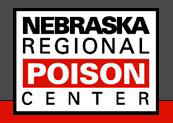 National Poison Prevention Week, which runs March 16-22 this year, helps raise awareness about the dangers of poison exposure.
National Poison Prevention Week, which runs March 16-22 this year, helps raise awareness about the dangers of poison exposure.
Significant progress has been made since the first National Poison Prevention Week in 1962, yet poisonings remain a threat to the safety and health of all Americans.
About 1 million children in the United States who are younger than the age of 5 are exposed to poisonous substances each year.
One call to the Nebraska Regional Poison Center can provide quick, reliable and free assistance in dealing with possible poisonings at any time of the day or night, often without a costly trip to the doctor’s office or emergency room. The specially trained nurses also can identify situations that are too serious to handle at home and may require emergency medical attention.
During National Poison Prevention Week 2008, the Nebraska Regional Poison Center wants to remind Nebraskans about the benefits — both medical and financial — of calling the poison center first when you suspect someone has been exposed to a poison.
Realizing that someone has been exposed to a poison is scary but it doesn’t always mean that person’s life is in danger or that they need to see a doctor right away, said the poison center’s Joan McVoy.
For example, parents often panic when they believe a child has ingested bleach. Some product labels make it appear as though one swallow of bleach is deadly and this often leads parents to call 911 or rush their children to the emergency room.
But in reality, ingesting small amounts of bleach will usually only irritate the digestive system. In many cases, poison center staff will give home treatment advice and instruct parents to watch the child at home.
“In general, about 75 percent of poisoning exposure calls that we receive are treated safely at home,” McVoy said. “That means when a person calls the poison center, they are often saving money by not going to an emergency room or physician’s office.”
In fact, in 2007 alone, the Nebraska Regional Poison Center estimated that its services saved patients about $22 million in health care costs.
In the early 1960s, when National Poison Prevention Week started, more than 450 kids died each year because of accidental poisonings. That number now is down to less than 30.
Last year, the Nebraska Regional Poison Center logged 40,129 calls regarding accidental poisonings. That’s an increase of 2,168 calls from the previous year.
Because poisonings often happen while adults are distracted, experts emphasize three strategies to reduce deaths and injuries from poisonings:
- Keep medicines and household chemicals locked up, out of reach and out of sight of young children at all times.
- Use child-resistant packaging because it saves lives. But remember that child-resistant doesn’t mean childproof.
- Call a poison center to get immediate treatment advice for poison emergencies.
The Nebraska Regional Poison Center offers tips on poison prevention as a free community service. For more information, contact the Nebraska Regional Poison Center by calling 955-5555 in the Omaha area or toll-free at 1-800-222-1222.
The Nebraska Regional Poison Center is sponsored by UNMC, The Nebraska Medical Center and Creighton University Medical Center.